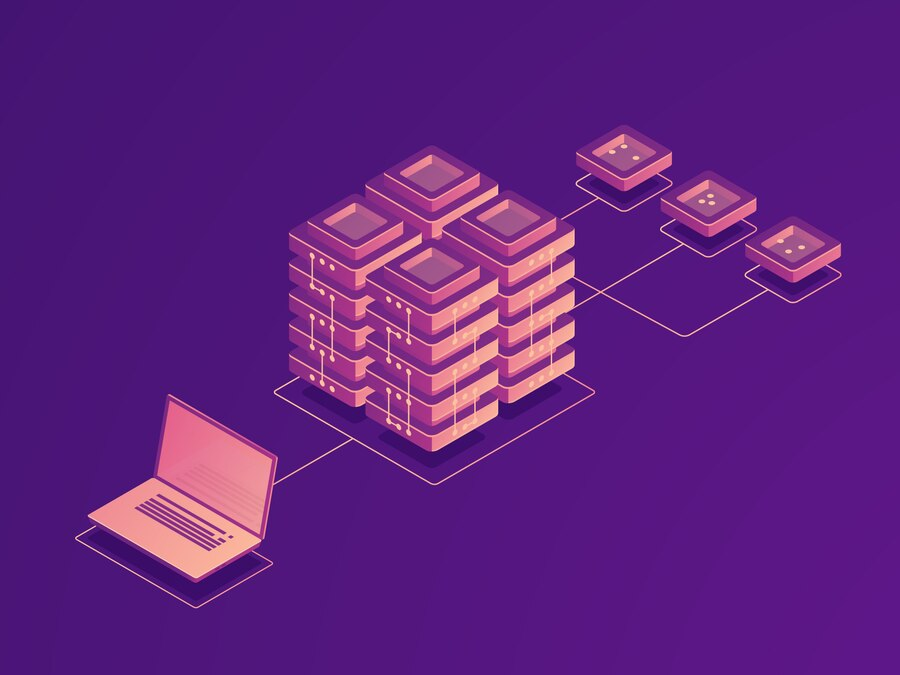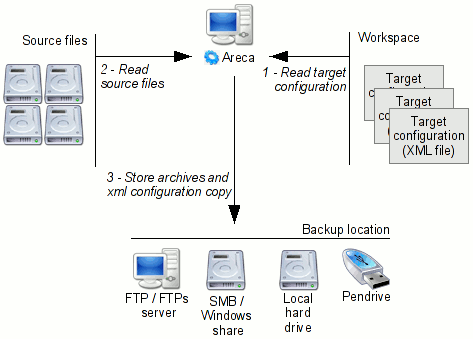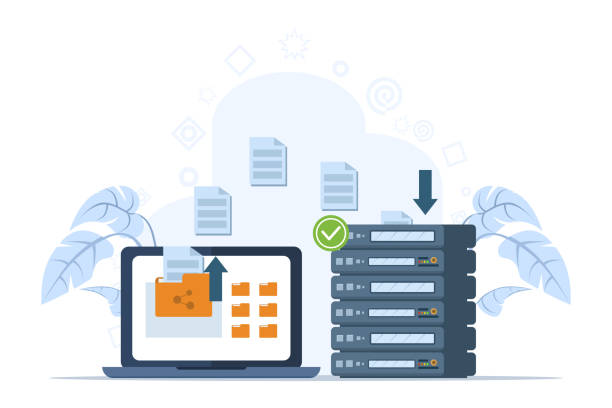Protection of data is crucial for businesses of all sizes in the current data-oriented era. Immutable backups serve as a sturdy stronghold amidst the broad spectrum of data-safeguarding techniques, providing an impregnable system that deters alteration and loss. This article delves into what immutable backups entail, their relevance to object storage mechanisms and also answers pertinent queries about its usage.
The Essence of Immutable Backups
It is crucial to comprehend the meaning of immutable backups in order to appreciate their worth. To put simply, these are copies of data that cannot be modified or erased during a given timeframe once they have been created. The unchangeable nature guarantees the purity and safety of information from any potential corruption caused by viruses, hacking attempts or human mistakes.
The Core Benefits of Immutable Backups
Immutable backups offer several key benefits, with the primary advantage being their capability to provide a dependable recovery point.
Data Integrity
Maintaining data integrity is crucial for every reliable data protection plan. It’s essential to guarantee that information remains unchanged and precise as time passes, which comprises a significant part of operations, legal obligations, and customer reliability. Immutable backups provide numerous benefits in preserving the veracity of stored data:
- Tamper-Proof Data: Immutable backups guarantee that data cannot be tampered with once written, making it essential for safeguarding sensitive information against unauthorized changes.
- Protection from Accidental Deletions: Immutable backups offer protection against accidental deletions and overwriting, ensuring that critical business data remains safe from human error. This safeguard is crucial in maintaining the integrity of important information.
- Long-Term Data Preservation: The preservation of data over a prolonged period is crucial for historical analysis, audits, and meeting compliance requirements. Immutable backups ensure the integrity of stored information intact even after an extended duration.
- Consistency and Accuracy: Immutable backups ensure the reliability and correctness of data by maintaining consistency and accuracy, guaranteeing that retrieved information during recovery is precise.
Enhanced Security
The increasing sophistication of cyber threats makes backup data security crucial in modern times. Immutable backups serve as a strong defensive measure against various security risks, particularly ransomware attacks. The improved protection advantages comprise:
- Ransomware Protection: Immutable backups offer a secure recovery point in case of an attack. This means that backup data cannot be encrypted or changed by cybercriminals’ malicious activities and avoid organizations paying ransoms while minimizing downtime.
- Unauthorized Access Prevention: Immutable backups guarantee the confidentiality and integrity of data by securing it from unauthorized access and alterations through locking.
- Audit Trails: Built-in audit trails are often included in immutable backups, offering a clear record of access and modifications. This attribute plays an essential role in identifying and addressing security incidents while also facilitating compliance audits.
- Resilience Against Insider Threats: One can build resilience against insider threats by employing immutable backups that prevent even high-level users from modifying the backed-up data.
Regulatory Compliance
To comply with strict industry regulations, organizations must securely and permanently store their data for a set period of time. This is where immutable backups come into play as they ensure that the information remains secure and unchangeable, helping businesses meet necessary regulatory obligations. Advantages to doing so include improved compliance adherence.
- Meeting Legal Requirements: Organizations are able to comply with legal requirements such as GDPR, HIPAA and SOX that demand data being stored unalterably by using immutable backups.
- Proof of Compliance: Immutable backups offer organizations verifiable proof of compliance by demonstrating that the data has remained unaltered. This evidence holds paramount importance during audits and legal proceedings.
- Reducing Legal Risks: The utilization of immutable backups guarantees data integrity and secure storage, ultimately mitigating non-compliance risks and avoiding the associated legal penalties. This valuable safeguarding measure shields organizations from incurring expensive fines or damaging their reputation.
- Facilitating Long-Term Archiving: Numerous regulations mandate the retention of data for extended durations. Immutable backups enable secure and compliant archival of information, guaranteeing its continuous accessibility and preservation in an unmodified state over time.
How Immutable Backups Work
Several technologies are utilized in immutable backups to guarantee data immutability.
Write Once, Read Many (WORM)
The Write Once, Read Many (WORM) technology is a fundamental component of immutable backups. It guarantees that data can only be written once and accessed multiple times without any alterations allowed. Consequently, WORM technology plays an essential role in achieving the immutability aspect within backup systems.
- Single Write Operation: Once data is written to the storage medium, it becomes unalterable and cannot be deleted. This single write operation ensures that there can only be one instance of the data on the medium.
- Read-Only Access: The information can be retrieved and perused frequently without the possibility of modification. Such access is designed to maintain data consistency and dependability.
- Protection Against Overwrites: To maintain backup integrity, it’s crucial to use WORM technology that blocks overwrites and preserves the original data.
- Compliance with Regulations: Regulatory compliance mandates that data must be stored in a WORM format. To comply with regulations and maintain the integrity of their data, organizations may employ WORM technology.
Blockchain Technology
Immutable backup solutions employ cutting-edge technology such as blockchain, which adds another layer of security and traceability. This ensures that every block of data is tamper-evident and sequentially connected. Let’s explore how using blockchain enhances the effectiveness of immutable backups:
- Sequential Data Blocks: The data is arranged in blocks that connect to one another sequentially. Each block incorporates a cryptographic hash of the prior block, thereby generating an impregnable and unmodifiable chain.
- Tamper-Evident: The tamper-evident nature of the blockchain means that altering a block would be noticeable right away since it disrupts the cryptographic connections between blocks, guaranteeing easy identification of any meddling.
- Enhanced Traceability: Blockchain technology offers improved traceability by creating a visible and documented record of data storage and usage. Every transaction or alteration attempt is logged, generating an unalterable digital trail for auditing purposes.
- Decentralized Security: Decentralized security is achieved through the distribution of data across numerous nodes in certain blockchain implementations, resulting in augmented protection and resilience against potential attacks.
Immutable Backups in Object Storage

To boost security and compliance, object storage systems manage data as singular units known as objects by implementing immutability. This is especially noteworthy for industries that handle vast amounts of unstructured information such as extensive archives or multimedia files. Therefore, comprehending the inner workings of immutable backups in relation to object storage systems plays a vital role in realizing their maximum efficiency.
Understanding Object Storage
Object storage architecture manages data as objects that are composed of the data itself, metadata, and a distinct identifier. It is ideal for storing substantial volumes of unstructured information like multimedia files, backups, and documents. Some critical traits include:
- Scalability: With the ability to manage immense volumes of data, object storage is well-suited for businesses that have expanding storage requirements.
- Metadata Management: The management of metadata enriches the organization and retrieval of data by associating it with each object.
- Durability: To guarantee high durability and accessibility, object storage systems frequently rely on data replication and erasure coding.
Integration of Immutable Backups in Object Storage
Various mechanisms are employed to achieve immutability in backup systems, augmenting the capabilities of object storage by preventing data from being modified or erased after it has been written.
- Object Locking: By locking objects in their current state, the feature of object locking prohibits any alterations or removal. In order to preserve data integrity and adhere to compliance standards, object locking is indispensable.
- Versioning: Object storage systems commonly have versioning capabilities that allow for the retention of multiple versions of a particular object. In cases where an object is altered, a new version is generated while the original remains untouched.
- WORM (Write Once, Read Many): Previously mentioned, WORM technology guarantees the capability of writing data only once and reading it multiple times without any alterations made to improve safeguarding measures.
Key Use Cases of Immutable Backups
Immutable backups are versatile and serve various scenarios:
Healthcare
In the healthcare sector, safeguarding patient records and adherence to regulations such as HIPAA (Health Insurance Portability and Accountability Act) are of utmost importance. Immutable backups offer several benefits within this industry:
- Protection of Patient Records: The safeguarding of patient records is ensured through immutable backups that maintain the original form of data since its inception. This preservation is extremely vital for upholding precise and trustworthy medical histories.
- Compliance with HIPAA: HIPAA Compliance can be achieved by healthcare organizations through the storage of data in an unchangeable format. The regulations require that patient information is handled confidentially and securely.
- Safeguarding Against Ransomware: Unchangeable backups safeguard patient data from being encrypted or modified, guaranteeing continuous availability of vital medical records.
Financial Services
The financial industry relies heavily on transaction record integrity and adherence to regulatory standards such as SOX (Sarbanes-Oxley Act) or GDPR (General Data Protection Regulation). Immutable backups are a valuable asset, providing substantial advantages.
- Safeguarding Transaction Records: The security of transaction records is ensured through unchangeable backups that preserve the integrity and reliability of financial data by preventing any potential falsification or manipulation.
- Regulatory Compliance: One way for financial institutions to adhere to strict regulatory requirements is by retaining transaction data in a format that cannot be modified, thus demonstrating compliance during audits.
- Protection Against Fraud: fraud can be prevented by utilizing immutable backups as they prevent unauthorized modifications and safeguard against both internal threats and fraudulent activities.
Legal Sector
The preservation of evidence and legal documents holds great importance in the legal industry to ensure fair judicial processes. Immutable backups offer a dependable answer for this concern:
- Integrity of Evidence: Immutable backups are crucial in maintaining the integrity of evidence and guaranteeing that it remains unaltered, thereby safeguarding its credibility during legal proceedings. This essential feature plays a significant role in upholding justice by ensuring fair trials for all parties involved.
- Compliance with Legal Standards: To abide by legal regulations, law firms can ensure adherence to legal and regulatory requirements by preserving evidence and paperwork in a tamper-proof layout that enables validation of proof during litigation.
- Long-Term Preservation: Immutable backups facilitate the prolonged retention of legal documents, ensuring their accessibility and integrity are maintained over time.
Media and Entertainment
The media and entertainment industry generates vast amounts of multimedia data that need to be preserved and protected. Immutable backups are highly beneficial in this sector:
- Preservation of Multimedia Assets: Immutable backups ensure that multimedia files remain unaltered, preserving their original quality and authenticity.
- Protection Against Unauthorized Edits: By preventing any modifications, immutable backups protect valuable media content from unauthorized edits or tampering.
- Regulatory Compliance: Media companies can meet regulatory requirements for data preservation and protection, ensuring that content remains accessible and unaltered.
Government
Government agencies handle a wide range of critical data that must be securely stored and protected from unauthorized modifications. Immutable backups ensure the integrity and availability of this data, supporting compliance with regulatory requirements.
- Protection of Sensitive Data: Immutable backups ensure that sensitive government data remains unaltered and secure, protecting national security and public interests.
- Compliance with Regulations: Government agencies can meet strict regulatory requirements for data storage and protection, ensuring data integrity and availability.
- Historical Data Preservation: Immutable backups facilitate the preservation of historical data, ensuring that it remains accessible and unaltered for future reference.
Setting Up Immutable Backups

Implementing immutable backups requires strategic planning and understanding of the technology. Steps typically include:
Choosing the Right Platform
Selecting the right platform is the foundation of setting up effective immutable backups. The chosen backup solution must support immutability and integrate seamlessly with the organization’s existing IT infrastructure. Here are key considerations:
- Compatibility: Ensure the backup platform is compatible with your current systems and applications. This compatibility ensures smooth integration and operation.
- Scalability: Choose a solution that can scale with your organization’s growth and data storage needs. Scalability is crucial for handling increasing volumes of data without compromising performance.
- Security Features: Look for platforms that offer robust security features, including encryption, access controls, and audit trails. These features enhance the overall security of your backup data.
- Ease of Use: A user-friendly interface simplifies the setup and management of immutable backups, reducing the risk of configuration errors.
Policy Configuration
Defining clear policies is essential for the effective implementation of immutable backups. These policies dictate the duration and conditions under which data remains immutable. Important aspects of policy configuration include:
- Data Selection: Identify which data should be immutable based on its importance and regulatory requirements. Critical and sensitive data should be prioritized.
- Retention Periods: Define how long data should remain immutable. Retention periods must comply with legal and business requirements.
- Access Controls: Implement strict access controls to ensure that only authorized personnel can manage and access immutable backups. This measure prevents unauthorized modifications.
- Compliance Requirements: Ensure that the policies meet relevant regulatory requirements. Regularly review and update policies to reflect changes in regulations.
Regular Audits
Conducting regular audits is vital to ensure the ongoing compliance and integrity of the immutable backup process. These audits help verify that backups are functioning correctly and that policies are being followed. Key components of regular audits include:
- Periodic Backup Verification: Regularly verify that backups are being created as scheduled and that the data remains immutable. This verification helps detect any issues early.
- Integrity Checks: Perform integrity checks to ensure that the backup data has not been altered. These checks involve comparing backup data against original data to confirm consistency.
- Compliance Audits: Conduct compliance audits to ensure that backup policies and procedures meet regulatory requirements. Document the results and address any non-compliance issues promptly.
- Access Logs Review: Regularly review access logs to track who has accessed or attempted to modify the backup data. This review helps identify any unauthorized access attempts.
Challenges in Implementing Immutable Backups
While immutable backups offer significant advantages, there are challenges to consider:
Storage Costs
One of the most significant challenges in implementing immutable backups is the associated storage costs. Since immutable backups prevent data from being overwritten or deleted, organizations may require more storage space to accommodate the growing volume of data. Here are the key considerations regarding storage costs:
- Increased Storage Requirements: Immutable backups necessitate additional storage capacity as new backups are created without overwriting previous data. This requirement can lead to substantial storage expenses, especially for organizations with large datasets.
- Long-Term Storage Costs: Storing immutable backups over long periods can further escalate costs. Organizations need to plan for the financial implications of retaining data for extended durations to meet regulatory and business needs.
- Cost of High-Performance Storage: To ensure quick access and retrieval of immutable backups, organizations might need to invest in high-performance storage solutions, which can be more expensive than traditional storage options.
Complexity in Management
Managing the lifecycle of immutable data requires robust data governance policies and processes. The complexity of managing immutable backups can be challenging, particularly for organizations with extensive and diverse data environments. Key aspects of management complexity include:
- Data Governance: Implementing effective data governance policies is essential for managing immutable backups. This process involves defining and enforcing rules for data retention, access control, and compliance.
- Lifecycle Management: Managing the lifecycle of immutable data, including its creation, retention, and eventual deletion (when legally permissible), requires careful planning and execution. Organizations need to establish clear policies for each stage of the data lifecycle.
- Integration with Existing Systems: Integrating immutable backup solutions with existing IT infrastructure can be complex. Ensuring compatibility and seamless operation across various systems and applications requires thorough planning and testing.
- Monitoring and Auditing: Continuous monitoring and auditing are necessary to ensure that immutable backups remain secure and compliant. This process involves regular integrity checks, access log reviews, and compliance audits, which can be resource-intensive.
Comparing Immutable Backups with Traditional Backups
Traditional backups and immutable backups serve the fundamental purpose of data protection, but they differ significantly in their approach and functionality. Understanding these differences is crucial for organizations to make informed decisions about their data backup strategies.
| Aspect | Traditional Backups | Immutable Backups |
| Flexibility | Traditional backups are flexible in terms of editing and deletion. Data can be modified or deleted as needed, which allows for easy management and updates. However, this flexibility also introduces risks, particularly regarding data integrity and security. | Immutable backups are designed to be unalterable. Once data is written, it cannot be modified or deleted. This immutability ensures that data remains consistent and intact over time, providing a reliable recovery point. |
| Data Integrity | In traditional backups, the ability to modify or delete data can lead to issues with data integrity. Human error, malicious activity, or system failures can result in data corruption or loss. | Immutable backups ensure data integrity by preventing any alterations once data is backed up. This immutability protects against accidental deletions, unauthorized changes, and malicious attacks, ensuring that the data remains reliable and accurate. |
| Security | Security in traditional backups depends on access controls and encryption. While these measures can provide a degree of protection, the modifiable nature of the data still poses a risk, especially from internal threats and ransomware attacks. | Immutable backups inherently enhance security by making the data unchangeable. This immutability is a strong defense against ransomware, as the data cannot be encrypted or altered by malicious actors. Additionally, the unalterable nature of the backups ensures that internal threats and unauthorized changes are effectively mitigated. |
Conclusion
The immutable backups meaning transcends mere data protection—it symbolizes a commitment to data integrity and security. As businesses continue to face sophisticated cyber threats, embracing immutable backups will be crucial in building a resilient digital defense. This understanding not only shields valuable data but also fortifies the trust stakeholders place in digital infrastructures.
FAQ
A: No, they cannot be altered or deleted until the predefined retention period expires.
A: While they significantly enhance security by preventing data alteration, other layers of security are necessary to protect against all forms of cyber threats.
A: Immutable backups do not typically affect recovery times but ensure that the data restored is exactly as it was at the time of backup.




